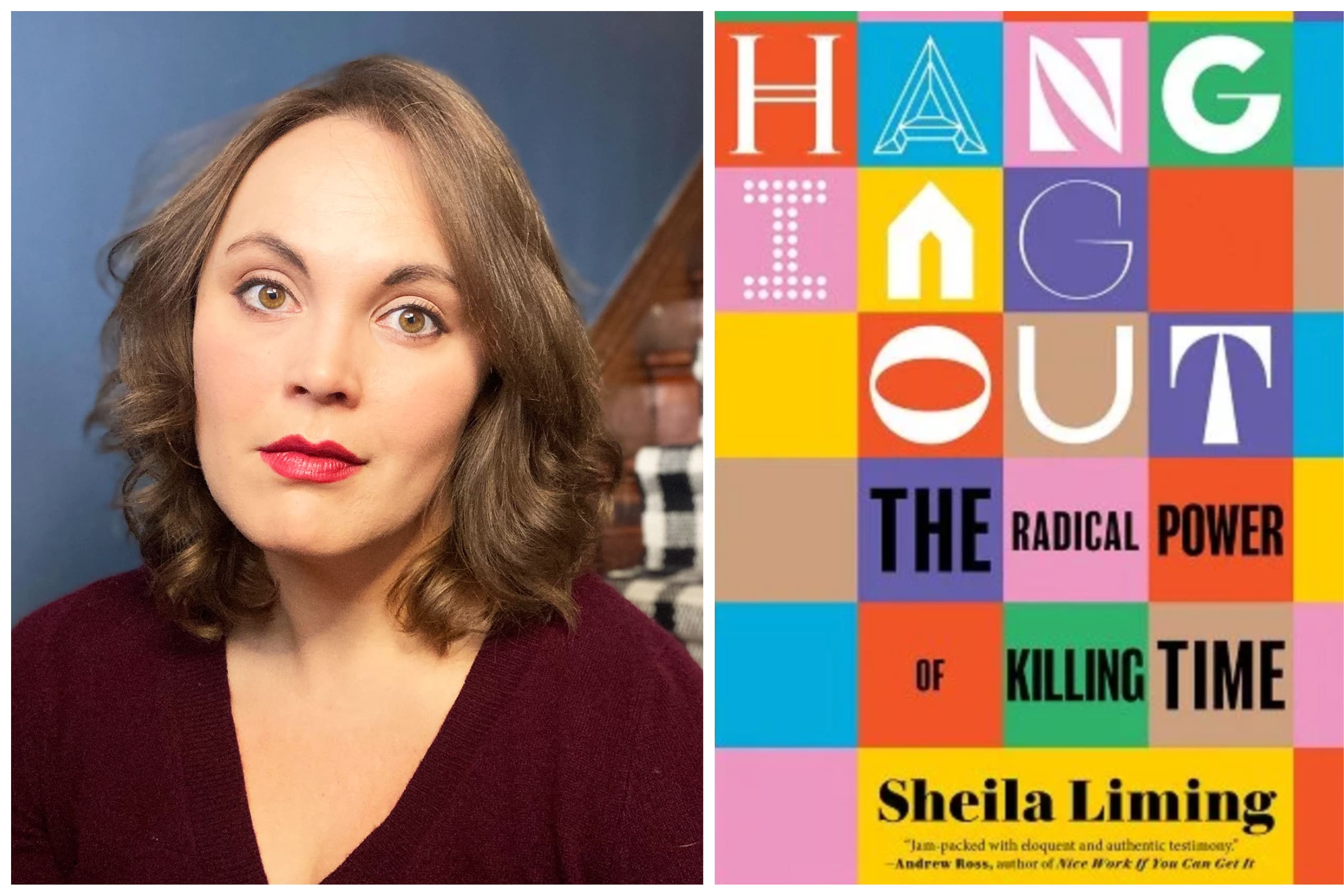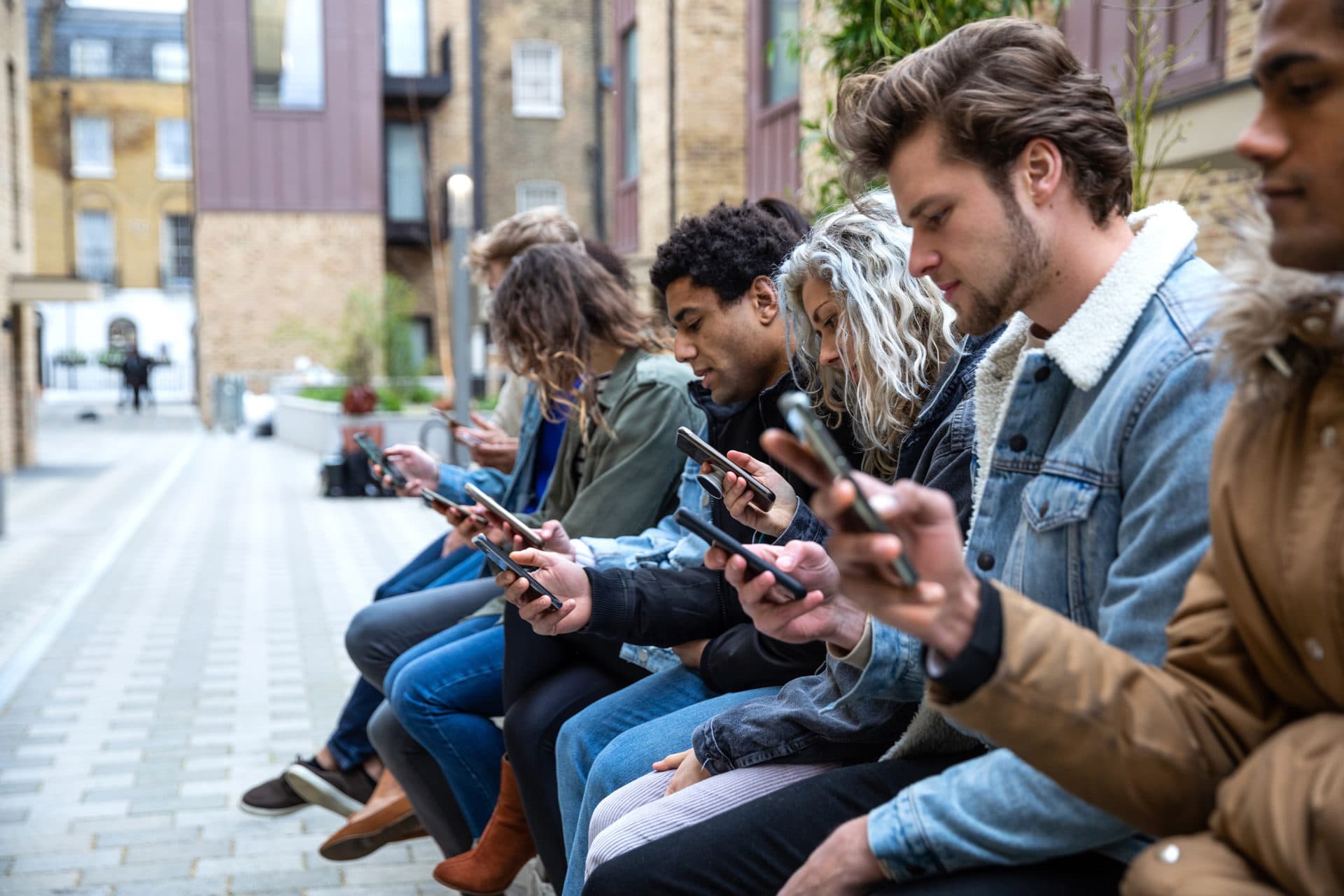Advertisement
Have your social muscles slackened? This new book argues 'Hanging Out' more can help

Here's a novel question: how often do you just “hang out”?
No, not on your phone or while watching Netflix, but with other people and without much of a plan?
In this over-scheduled, hyper-digital world that answer might be “not much” or even “never.” Because of that reality, the author of a new book is fighting for people's right to reclaim “hanging out" before it's lost as a social art.
Via Zoom, Sheila Liming harkened back to a time when people were pretty good at gathering aimlessly. She pointed to the 1990s when a bunch of movies reveled in lollygagging, including director Richard Linklater's “Slacker.”
This meandering navel-gazer follows a series of random characters around Austin, Texas. “We see people hanging out, doing what they would do on a normal day, having normal conversations,” Liming said. “It creates this document of social activity.”
“Slacker” might not have a plot, per se, but Liming — a professor at Champlain College in Vermont — said real life doesn't have one either. For these times she's fashioned her own definition for this kind of activity. “Hanging out means daring to do not very much,” Liming said, “and daring to do it in the presence of other people.”
Liming defends why it's “daring” — and valuable — in her new book, “Hanging Out: The Radical Power of Killing Time.”
“When we spend time with each other — without having a real agenda placed upon that time or how it has to be spent — what we get to produce is our connections, our social atmosphere, the world that we live in,” she said.
Advertisement
But this teacher of literary criticism and cultural studies fears unstructured socializing might be going extinct. “When I walk down the streets these days in Burlington, I see people wearing headphones to avoid having to talk to each other,” she said, “or to avoid having to get into interactions where they might have to talk to somebody they don't know or else don't want to talk to.”
It's the opposite of the spontaneous chatter between strangers and friends that materializes in “Slacker.”

“Hanging Out,” is part memoir, part manifesto. To be clear, it is not a self-help book. It's a humorous, personal, rigorously academic, pop-cultural and literary ride through how our social lives have shifted over time.
In the past, Liming has set her radar on how spaces were evolving into something different, including libraries and offices. Her current treatise urges people to consider why casual encounters have mattered, and still do: at parties, on the job, with strangers, over a meal, even jamming if — like Liming — you're a musician (she plays the accordion).
In part, she traces challenges she's observed back to the advent of social media. Liming was in college when Facebook started hitting computer screens first on campuses. “And I remember one of my friends early on describing Facebook as a website where you can collect friends like trading cards.”
Liming wondered why anyone would want to do that. Invitations from parties went from printed notes slipped into mailboxes to mass messages on Facebook. This new, impersonal way to foster gathering made Liming uneasy. “So there was this incentive that you had to join this system that was actually making our interactions with each other more separate and creating wedges that drove us apart a little bit.”
Then came smartphones, and their evolution as humans' constant companions.
"It's not even something that I'm trying to necessarily judge, it's more something that I'm trying to understand – Why we would want to have conversations with people that are not present as opposed to trying to engage with the people who are.”
Sheila Liming
“I think one of the things that the smartphone did was it convinced us that our audience is elsewhere,” Liming mused. “It's not even something that I'm trying to necessarily judge, it's more something that I'm trying to understand: why we would want to have conversations with people that are not present as opposed to trying to engage with the people who are.”
Scrolling and texting pull people away from those around them, Liming said. You might relate to what happened last Christmas when she suggested her extended family sit down to take in a movie together. “And I think I'm the only one who watched it,” she recalled, “because everybody else was on their phone the whole time.” Her hopes for a post-film discussion were dashed.
Liming believes people have developed “bad social posture.” Isolating because of the pandemic hasn't helped. “In the book I used the metaphor of musculature a lot. Like thinking about how we have to train these muscles to be in shape to do certain things,” she said. “I feel like those muscles have really slackened.”
Liming has talked to plenty of people who want to get back in social shape. But they’re struggling. It’s like we’ve forgotten how to hang out. Maybe you've also felt like you can't just drop by a friend's house — or even call them — without scheduling first? Liming thinks our perceptions are driven by an assumption that everybody is already super busy or super planned, and any second people are not being productive is a waste. Her book is a call to fight against that drumbeat.

“I think of this as kind of like seizing time and taking it back from where it's been stolen from us — and that includes the work day that has just extended beyond all means of rationality,” she said, adding, “Hanging out is productive, and the thing that it produces is our relationships with each other.”
If you need help finding your inner slacker, Liming's book invites you to start by putting your phone — face down — on the table. “Or better yet, throw it out the window,” she suggests in her introduction. “Take off your coats. Pull up a chair. Grab yourself a beverage. Hang out for a bit.”
For the record, Liming admits she’s no expert at hanging out. But she hopes she won’t be alone in giving it a shot. Putting ourselves in unpredictable social situations, she said, often doesn't go exactly the way we want — and that's OK. Perhaps the serendipitous joy of hanging out is best expressed through a quote she shares in her book from Virginia Woolf's "To the Lighthouse."
"The great revelation perhaps never did come. Instead, there were little daily miracles, illuminations, matches struck unexpectedly in the dark.”
This segment aired on February 13, 2023.

